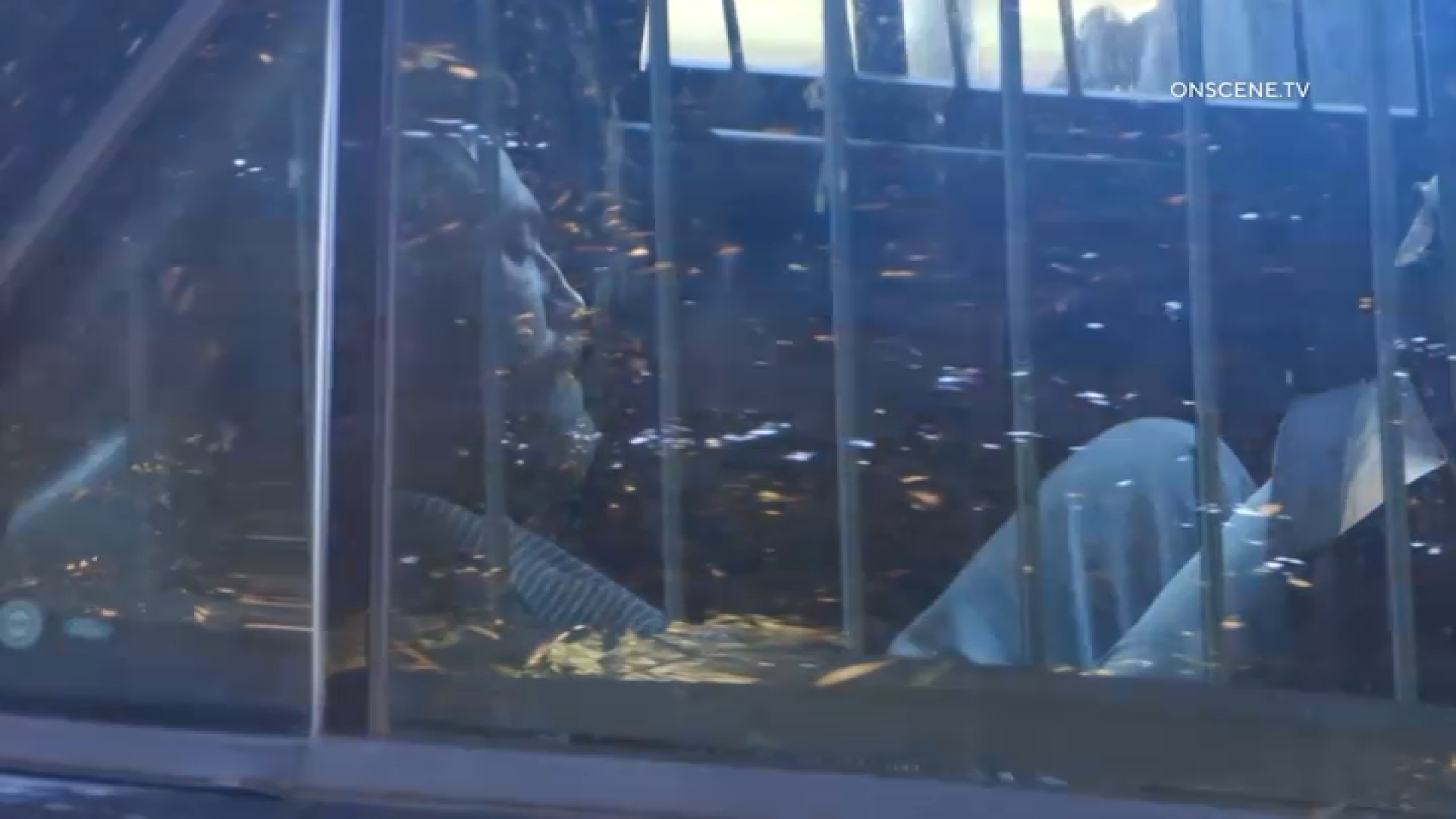Just a few years ago, many San Diegans were bemoaning the omnipresent nuisance — and dangers — of electronic scooters.
Critics lodged complaints about the vehicles riding too fast on heavily trafficked walkways, helmet-less riders who were seriously injured and, occasionally, handicapped travelers who were blocked by the the large scooters left on sidewalks. Supporters pointed out, though, that every time somebody rode a scooter, it was one less car on the road, and a lot less carbon being generated as a result.
As 2023 comes to a close, though, it's difficult to locate one of the one-time two-wheeled terrors, unless they're privately owned or on the campus of San Diego State.
Bird and SDSU have a contract that keeps scooters stocked around campus. It seems to be a hit with students, especially freshmen who can't have cars on campus.
Get top local stories in San Diego delivered to you every morning. Sign up for NBC San Diego's News Headlines newsletter.
"You just use the app, and you press go, and you just ride around. It's pretty fun," freshman Carson Sabine said.
This week, the e-transit company Bird, which is believed to have been the largest fleet — flock? — of e-scooters in San Diego, announced it, too, at least temporarily, was flying the coop.

Local
WINTER SNOOZE
San Diego … We'll See You Soon 👋 🛴
Thanks for believing in our vision of a world with fewer cars and cleaner air. We're working hard with the city of San Diego to return alternative transportation options to our loyal riders next year!
SEE YOU SOON!
While theories abound regarding the demise of the the-scooters in San Diego — though there is, finally, an abundance of corrals for parking the e-bikes and their two-wheeled cousins, literally hundreds of them across the city — one suspect in particular stands out: Restrictions imposed by the city in July of last year, when four different companies were permitted to run them around town.
Among other elements of the crackdown: geofencing that prevented the operation of the scooters along places like the boardwalk in Mission Beach and Pacific Beach; the number of the devices operating in the city were reduced to 8,000 citywide; and riders were restricted via geo-fencing to 3 mph when riding at places like the Embarcadero and on public sidewalks. That's about the same speed a person walks quickly.
Another obvious concern for the scooter companies operating in San Diego was vehicle theft. Security expert and private investigator Dorian Bond told NBC 7 that he had been in discussions with Bird earlier in the year to look into where the scooters were disappearing.
"It doesn't surprise me [that Bird is leaving] because I know they were losing a lot of money," Bond said. "[Bird] showed me a map that showed an enormous amount of Bird scooters in the Tijuana area, so I guess there's a group of guys that are going around the area and snagging them up and taking them across the border."
Bond said Bird wanted to hire him to stop the alleged thieves before they released more sophisticated and expensive scooter models onto the streets. Bond said discussing the job with Bird was the furthest the two parties ever flew. He was never actually hired.
Alyssa Muto, the city of San Diego's Sustainability and Mobility Department director, believes that micro-mobility options are important to the city being able to reach its municipal climate action goals. On Wednesday, she was attending an Active Transportation and Infrastructure meeting Wednesday at which the topic of e-scooters was being discussed, so she was unavailable for comment for this article but did send a statement, which reads, in part:
"The city has partnered closely with shared mobility device (SMD) providers to update municipal regulations over the past five years and to address challenges in this rapidly evolving field. The city is disappointed that the SMD operators have been unable to deploy in San Diego or chosen to temporarily suspend their programs in most of the city for the next couple of months, limiting availability to UC San Diego and San Diego State University. San Diego’s SMD Program is not concluding. We look forward to devices returning to the rest of the city and the continued evolution of micromobility solutions to serve our communities."
Among the proposals being discussed Wednesday at the Active Transportation meeting:
- Reducing the requirement for riders to upload an image of their personal ID prior to their first ride only, not every three months
- Using audio alerts to notify drivers where the speed limits are in effect on sidewalks
- Creating a citywide speed limit of 10 mph from 12:30-5:30 a.m.
The committee voted unanimously to send the revisions to the city council for consideration.

NBC 7 has reached out to Bird for a comment but has yet to hear back. — Ed.



